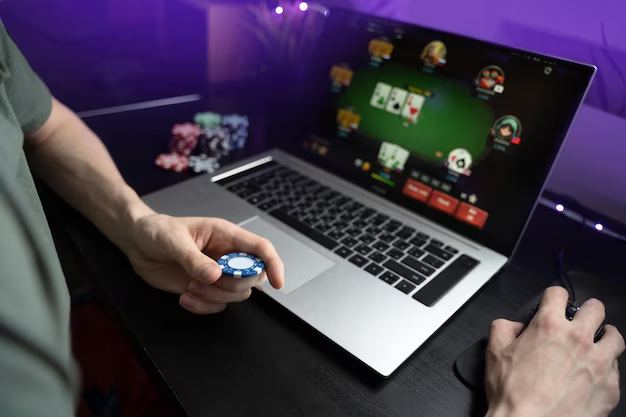
|
Online gaming has transformed from a casual pastime into a global phenomenon. Millions of players log in daily to compete, collaborate, and connect in virtual worlds. But what drives this passion for competitive play?
Is it the thrill of victory, the desire for social interaction, or something deeper rooted in psychology? Understanding the motivations behind online gaming not only sheds light on player behavior but also reveals how these digital experiences impact our emotions, social connections, and even cognitive abilities.
In this article, we'll explore the psychological factors that fuel competition and the top 10 trusted online casino Malaysia gaming and why so many players find it irresistibly engaging.
The Thrill of Competition
The Dopamine Rush of Winning
Victory in online games triggers a surge of dopamine—the brain's “feel-good” chemical. This reward system reinforces the behavior, encouraging players to keep striving for success. Whether it's securing a hard-fought win in a battle royale or achieving a high rank in a leaderboard, the sense of accomplishment can be addictive.
The Role of Challenges
Games are designed to be challenging yet achievable. This balance, often referred to as the “flow state,” keeps players engaged. The right amount of difficulty pushes gamers to improve their skills, making each victory more rewarding.
Social Motivations
Building Connections
Online and real money casino apk games provide a platform for social interaction. Players form friendships, join teams, and build communities. These connections often extend beyond the virtual world, creating a sense of belonging.
Peer Recognition
Many gamers are driven by the desire for recognition. Earning respect from peers through achievements, rankings, or skillful gameplay can be a significant motivator. This social validation reinforces their commitment to competitive play.
Psychological Benefits
Cognitive Skill Development
Competitive gaming isn't just fun; it sharpens critical skills. Players develop strategic thinking, quick decision-making, and multitasking abilities. These skills often translate to real-world scenarios, enhancing problem-solving and adaptability.
Stress Relief
Surprisingly, intense gaming sessions can help players unwind. Immersing oneself in a game distracts from daily stressors, offering a temporary escape. For some, the focus required during gameplay provides a calming effect.
The Role of Personal Identity
Crafting an Online Persona
Gamers often create avatars or profiles that represent their ideal selves. This opportunity for self-expression allows players to experiment with different identities, boosting confidence and self-esteem.
Achievement and Mastery
The pursuit of mastery is a powerful motivator. Many players dedicate hours to perfecting their skills, viewing each improvement as a personal achievement. This sense of progress is deeply satisfying and fuels continued engagement.
The Dark Side of Competitive Gaming
Burnout and Frustration
While competition can be exhilarating, it’s not without its downsides. Continuous losses or pressure to perform can lead to frustration or even gaming burnout. Recognizing when to take a break is crucial for maintaining a healthy balance.
Toxic Behavior
Competitive environments can sometimes foster toxicity. Trash talk, harassment, and overly aggressive behavior can detract from the positive aspects of gaming. Promoting sportsmanship and mutual respect is essential for a healthy gaming culture.
Conclusion
The psychology of online gamers is a fascinating blend of biological, social, and emotional factors. From the dopamine-fueled highs of victory to the deep connections forged with teammates, competitive play offers a unique and compelling experience. While the drive to win and achieve mastery keeps players coming back, it’s the blend of challenge, social interaction, and personal growth that makes online gaming truly engaging. By understanding these motivations, both players and game developers can foster environments that enhance the positive aspects of gaming while mitigating its challenges. So, the next time you log in for a match, remember: it’s not just a game—it’s a reflection of what drives us as humans.







